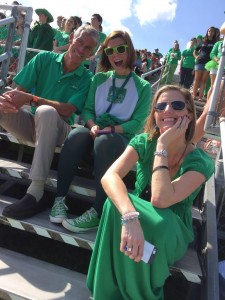
In classes such as AP World History and AP Psychology, Ms .Michelle Engdahl is known for keeping things student-centered in both the curriculum and the student-teacher relationships that formulate during the year. Despite her obvious passion for educating, teaching history to high schoolers was not originally a part of the plan.
From her relationship with her family in Pennsylvania to the evolution of her unique teaching style, here is a look at Ms. Engdahl’s life in her own words:
A “perfect” Pittsburgh family
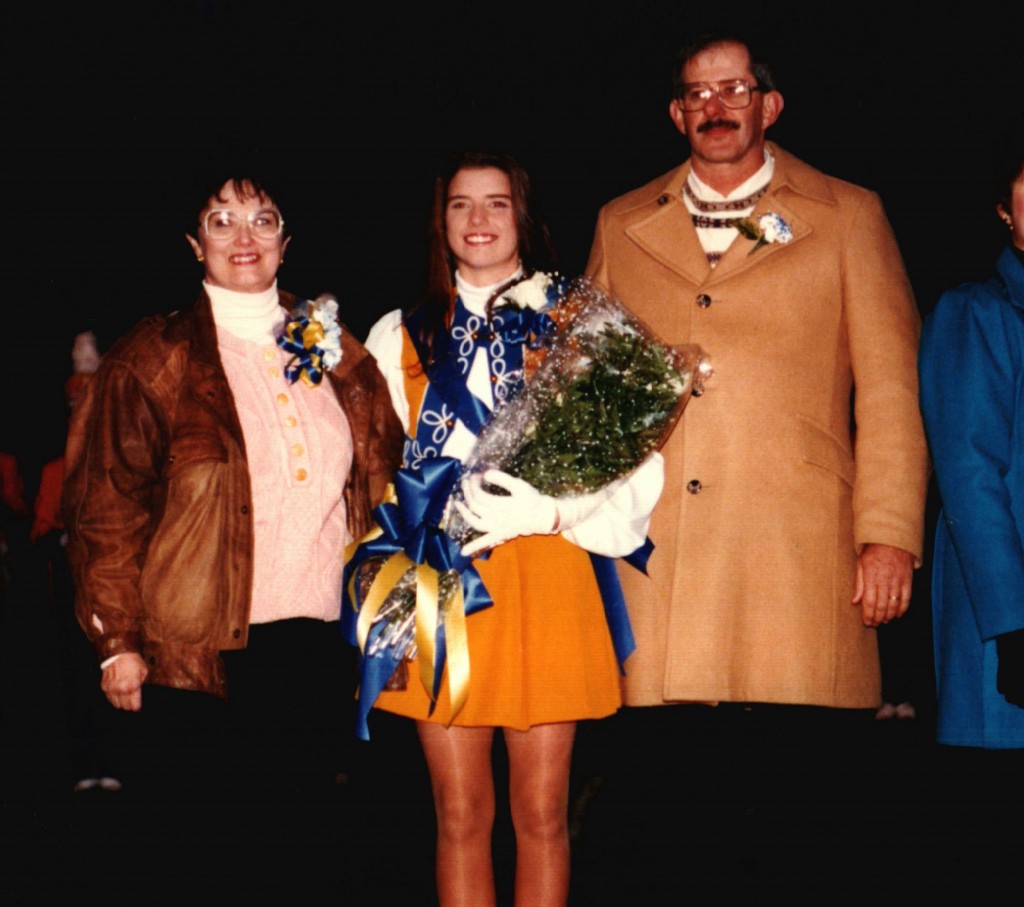
“I always say [I grew up in] Pittsburgh, but it’s really Cecil Township, [Pennsylvania]…It’s about twenty minutes south of the city.
“The technical dynamic [of my family] is my mom, my dad, my brother, and I. My brother is two years younger than me. My relationship with my family…was perfect. I would say we were perfectly normal, but in reality, it’s probably better than what normal is. I don’t think I really understood when I was younger that people had it tough because my parents loved us. They did as much for us as they could…But I never got the Barbie Dream House…It was sort of like that. They made sure we had enough, but not too much to where we didn’t appreciate it. I think that definitely has affected me as an adult, just because I realize also that you don’t need all the junk in life. I don’t need the Barbie Dream House.”
The role of education early on
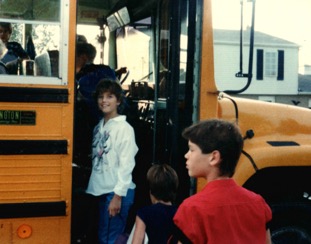
“Education has always been an important part of my life because my dad is a retired teacher. When I was a little girl, I played school, not mom. I’d line up my dolls and my stuffed animals and teach them or anyone who would listen to me. I had a little desk that my dad brought home from school and ditto paper and all kinds of fun things. [School] was just something that [my parents] expected us to do well, but it was okay if it wasn’t perfect.”
“I knew how to do school. I try to tell that to kids who may be struggling. It’s just surviving; do what you’re supposed to do, get the grades you’re supposed to, behave well, and stay out of trouble and then you end up fine…I think I still know how to do school, only it’s doing life.”
From a small town to the big city: the University of Pittsburgh
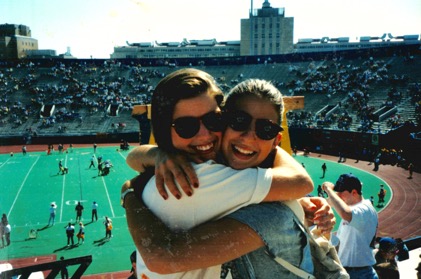
Photographed during her sophomore year of college, Ms. Engdahl hugs one of her friends at Pitt Stadium. She attended the University of Pittsburgh from 1994 to 1998. (Photo courtesy of Michelle Engdahl.)
“Oh, I always say [college] was the best four years of my life just because it was so much fun. My parents were strict enough that it really did feel like freedom, but not so much that they weren’t twenty minutes away…But it felt very independent. It was downtown — it was in the city, so it blended in with the actual city area. It felt really independent and freeing. I was 18. That’s so young, but I felt so grown up, and I met a million new people, people from everywhere–all walks of life, different parts of the country, different backgrounds, different beliefs, different cultures. It just totally changed my whole world perspective. Coming from a small town…to a city was one of the best things that ever happened. It totally changed my outlook on the world, in a good way. I got to see what life is really like. I don’t really know what it would be like if I never left a small town. You only know one type of person always. To me, even thinking about that is just disappointing. That was the best thing that Pitt had to offer, just that it was amazingly diverse.”
A renewed interest in history and teaching
“The first history class I took, I was hooked, completely. I really felt like I learned zero history in high school when I started taking classes in college. I always liked history. It was just one of things–what do you do with it? Which is kind of the point. It didn’t seem like something you do things with but then I continued to take them.
“When I declared history finally as a major, you have to decide. Okay, law school? Nah. I never planned to be a teacher but that was the most logical choice…”
Why North Carolina?
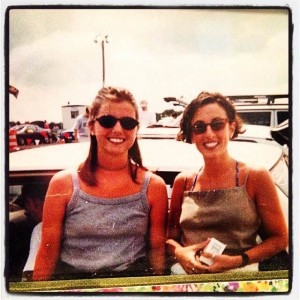
“I came to Leesville in 1998, pretty much because there were no teaching jobs in Pennsylvania. North Carolina actually came and recruited specifically at Pitt.
“[North Carolina] was just so appealing. Everything was new looking compared to the northeast, where everything just looks old because it’s been around forever. It just seemed fresh and clean and pretty and warm.
“I interviewed [with Leesville] and got the call…that afternoon–a job offer. I was working in the china department at Belk at the time, so I didn’t know anything about the area. I didn’t know anything about china either, but all the women who worked there knew enough. [They said,] ‘If they offer you the job, you better take it. That school is awesome.’ I said, ‘Okay! I will!’ and 18 years later, here I am, still hangin’ out at Leesville.”
A changing teaching style
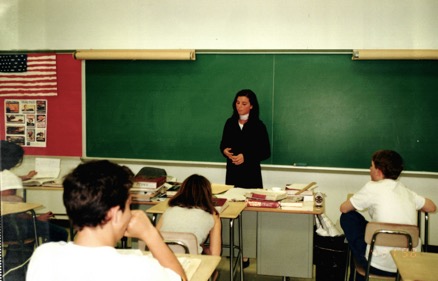
“Kids have changed, the technology has changed; you have to roll with it. I’m not a fan of lecture. If I stand up and talk at them…for 45 minutes, I’m boring them and myself. I’m much more of a student-centered teacher, which puts the responsibility of the work on them. A lot of students don’t like that. They want everything given to them, at least that’s what I’ve found in my experience, which I understand. It’s much easier to sit there and take in, whether you’re really taking it in or not, something that’s given to you either on a powerpoint or a handout…
“My dad’s a teacher, retired, but he taught for 35 years special ed. He influenced my teaching style a lot by reinforcing that not every kid is gonna be able to sit and learn in the same way and that you really have to make accommodations or find a way to reach what that student is interested in.
“Some are good at maybe writing lyrics, which is just a poem, but you call it lyrics it changes the expectation. So I like to provide opportunities for all types of assessment.
What an ideal classroom looks like
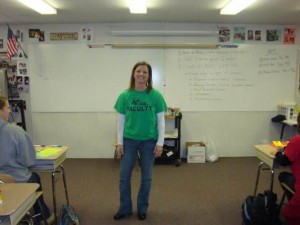
“I almost would enjoy going back [to 55 minute classes], primarily because I miss having the students for the whole year…I feel like as you’re just getting to know students, it’s time to change to new classes. A year long would be nice. At that time, World History also was not honors and academic. So I had the future valedictorian and the student who might not graduate in the same class. Again, looking back, I was really excited to split into honors and academic, but that’s something else I would like to go back to. I feel like your future valedictorians have a lot to learn from students who aren’t like them, and students who may be struggling or may not think that it’s cool to do well in school will rise to the occasion.”
“Obviously at the end of the day, they still have to take the [same] test, which getting into my ideal classroom, I wouldn’t have grades at all. That’s the number one thing that I would eliminate…I really think that the grades, getting into college, all that pressure, leads to so much unnecessary stress on [students].”
AP experience
AP Psychology —
“I think [AP psych] is a great class. It’s a fantastic gateway to AP classes [because] it’s manageable. I don’t want to use the word “easy”, but it’s manageable and a student who has an interest in the subject, is willing to do the work, and wants to try their hand at AP? Perfect place to start…I get a diverse group in there, too. I have students who are not your AP student that are in there, and honestly, that’s what makes the class interesting. It really is. Because then you get the conversations going. [They’re] not worried about the grade.”
AP World History —
“I, last year, had the chance to go and score the written part of the AP World exam, so I learned a ton from doing that. It helped influence how I taught the writing portion this year because I read 8 hours a day of essays. Some were great, some not so much. It’s interesting to see how students from other places get their words out there. That was a great experience and I’m gonna go do it again this year, I’m really excited about that.”
What students should take away
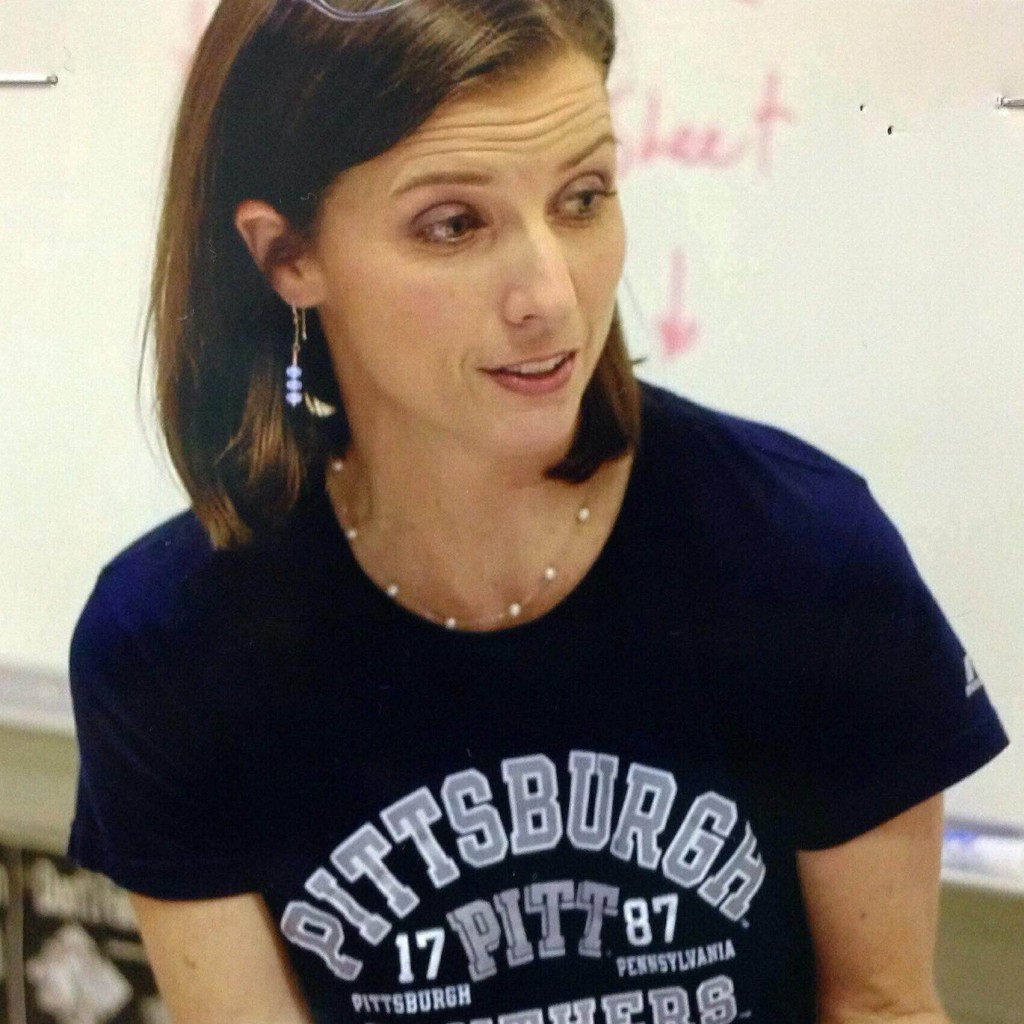
“Honestly more than anything, I hope that [students] take away from my class that I care about them. I like to think that…I put them first. If they’re having a crap day, they can tell me they are and we’ll figure out a way for them to take the test tomorrow. In the grand scheme of things, that test doesn’t matter. Their well being does, whether they’re upset about a breakup with a boyfriend or a fight with a friend, or who knows what’s going on at home. You never know what’s someone’s going through and I have to remind myself that every single day…
Why teach?
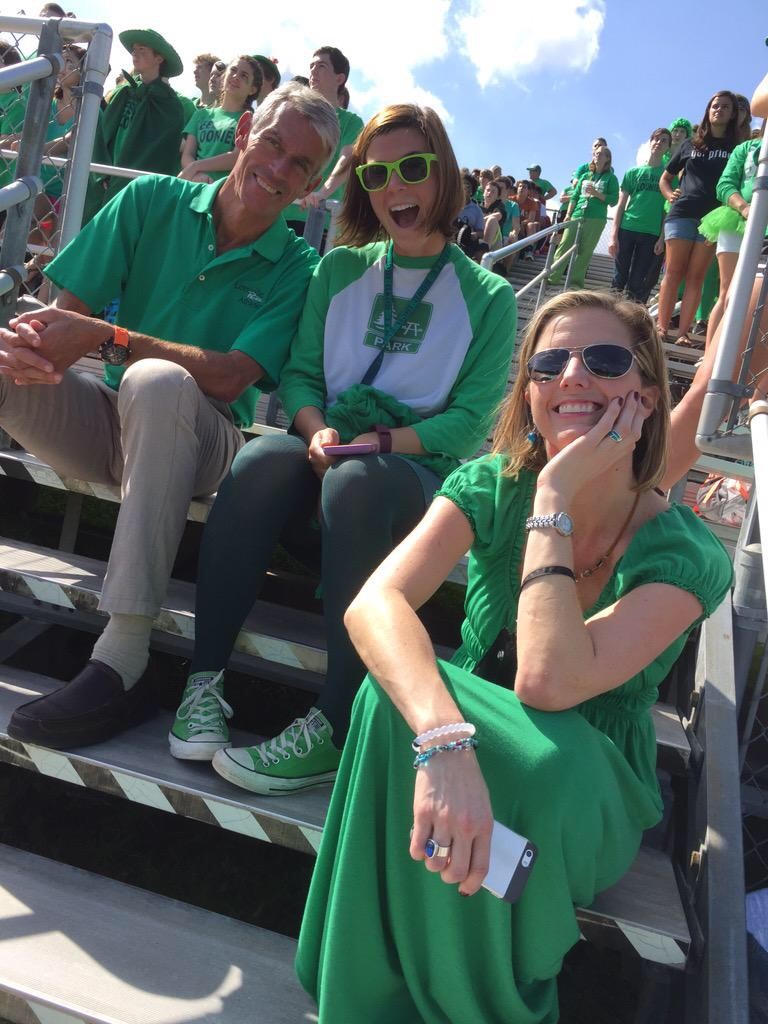
“If I could start over again, I…would possibly consider clinical psychology, a therapist, that role. I would not start that now, no way. But in a way, that’s still interacting with people, helping them learn, learn for themselves, not tell them what to think but let them develop it on their own.
“There’s a ton of things out there that I can do, but there’s nothing else I want to do. That’s really why I’m here. This is what I want to do. Teaching isn’t a job, it’s who you are. I feel like it’s an identity more than a career or a job.”